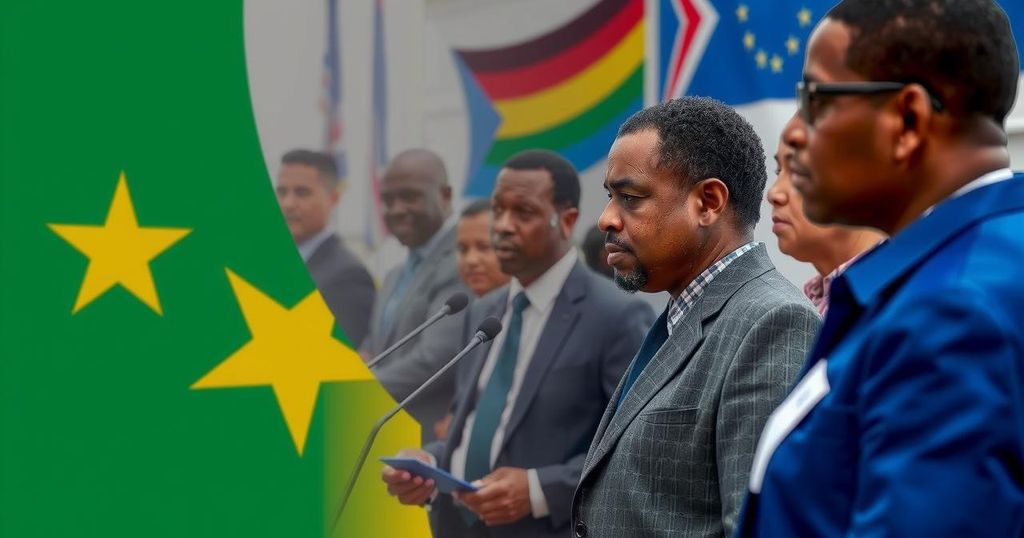Concerns Raised Over Mozambique’s Election Integrity Amid Protests

The EU has declared that some election results in Mozambique may have been doctored, amid ongoing unrest following the killings of opposition figures. Venâncio Mondlane, an independent candidate, is leading protests against the alleged electoral manipulation claiming the killings were politically motivated. The electoral process is under scrutiny due to reports of irregularities, vote-buying, and diminished access to official results after the electoral commission’s website was attacked.
The European Union (EU) election observers have raised concerns regarding the integrity of the election results in Mozambique, alleging that some have been manipulated amid increasing unrest in the country. On Monday, significant opposition protests took place, led by independent presidential candidate Venâncio Mondlane, who accused state security forces of the recent assassination of his lawyer, Elvino Dias, and political figure Paulo Guambe. While Mondlane asserts that these events were politically charged, the authorities dispute any culpability. The official election results from the general elections held on October 9 are anticipated to be released by Friday. The EU observer mission reported “irregularities during counting and unjustified alteration of election results at polling station and district level,” and has called on electoral bodies to ensure transparency and traceability in the results process. Additional reports from the International Republican Institute, based in the United States, have highlighted incidents of vote-buying, inflated voter registration lists favoring the ruling Frelimo party, and voter intimidation. Compounding these issues is the electoral commission’s website, which, after purported cyber-attacks, has remained non-operational, limiting public access to results. Mondlane, who has gained support from the opposition party Podemos, proclaims to have secured victory despite the turmoil, claiming the killings of his associates were orchestrated by the defence and security forces. The clashes between protesters and police in cities like Maputo turned violent, with reports of demonstrators using burning tyres and barricades as a means of protest. Activists have reported that law enforcement utilized live ammunition and tear gas to disperse crowds. The unrest prompted a significant reaction, with former President Armando Guebuza and international entities such as the UN, US, and EU condemning the violence and demanding accountability from the government regarding the ongoing investigations into the shootings. Renowned author Mia Couto described the violent incident as a “crime against the nation.” Additionally, with President Filipe Nyusi retiring after the conclusion of his two terms, the Frelimo party’s candidate Daniel Chapo faces competition from Mondlane, Ossufo Momade of the Renamo party, and Lutero Simango of the Mozambique Democratic Movement.
The political landscape in Mozambique has long been dominated by the Frelimo party, which has held power since independence from Portugal. The current election cycle has taken place against a backdrop of rising tensions and political violence. The assassination of key political figures and widespread allegations of electoral fraud and voter manipulation have heightened concerns about the legitimacy of the electoral process. As the country prepares for a presidential transition with President Nyusi stepping down, this election is critical for the future of Mozambique’s democracy and governance.
The situation in Mozambique remains precarious as allegations of electoral fraud and political violence abound. The European Union’s claims of manipulated election results, coupled with the tragic killings of political figures, have sparked widespread unrest and drawn condemnation from various entities. As Mozambicans await the official election results, the demand for transparency and accountability grows louder, highlighting the urgent need for reforms in the electoral process to ensure a fair and democratic political landscape.
Original Source: www.bbc.com







